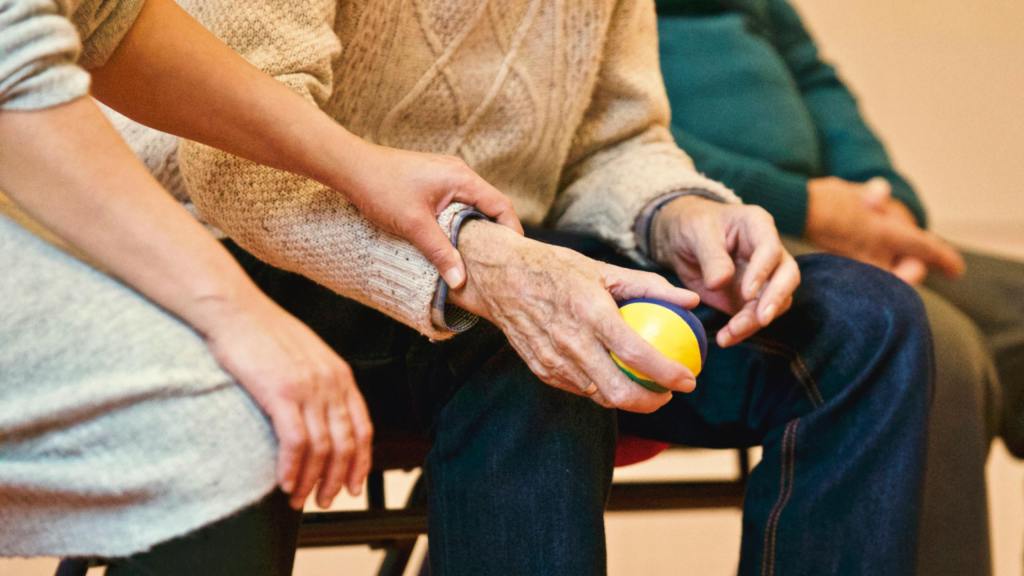
Signs of Dementia: Causes of Dementia, Signs and SYMPTOMS to Watch For, and More
Causes of Dementia
Symptoms of dementia don’t often appear suddenly. Instead, they tend to build and become more noticeable over time. The resulting impact on core mental functions including memory, communication, mental focus, reasoning, and visual perception is caused by damage to the cells of the brain. This damage occurs for several reasons, including:
- High levels of certain proteins inside and outside brain cells
- Lack of blood flow or oxygen to the brain
- Stroke
- Genetic factors
- Depression
- Side effects of medication
- Excess alcohol use
- Thyroid problems
- Vitamin deficiencies
Some individuals are at a higher risk of developing dementia later in life, including people with learning disabilities, those who have HIV/AIDS, and individuals with a history of alcohol abuse. Additionally, traumatic brain injury can also increase a person’s risk of developing dementia later in life.
Signs and Symptoms of Dementia
In order for a person to be diagnosed with dementia, least two core mental functions must be significantly impaired. Symptoms of dementia include progressive difficulty with:
- Memory, such as forgetting names of family members or regressing to childhood memories.
- Communication and language, such as forgetting the word for everyday items.
- Ability to focus and pay attention, such as “spacing out” or an inability to complete tasks.
- Reasoning and judgment, such as going out in winter without a jacket or exhibiting behavior deemed inappropriate in the context of societal norms.
- Visual perception, such as not being able to differentiate contrast, not detecting movement, or even trouble with orientation.
Other early signs of dementia include changes in behavior, aggression, vision and hearing loss, hallucinations, wandering, sleep disturbances, or anxiety and depression. In the later stages of dementia, signs and symptoms include loss of the ability to communicate, severe memory impairment, difficulty completing the activities of daily living, weight loss, and loss of physical control over one’s body.
Diagnosing Dementia
It is important to have a healthcare professional trained in assessing neurological status evaluate you or your loved one, as dementia can present similarly to a number of other illnesses including delirium, Alzheimer’s, or a brain tumor. Many of the signs and symptoms of these conditions are interchangeable, and sometimes there may be a diagnosis of more than one condition concurrently. As dementia progresses, the various types of dementia may appear similar. In the early stages, however, distinct types of dementia often present differently. A qualified professional can spot these subtle differences. Often, it is a person’s caregiver who will notice symptoms of dementia building over time and subsequently flag them to their doctor. As there isn’t one single specific test to diagnose dementia, careful review of a person’s medical history, a physical exam, lab tests, and the characteristic changes in thinking, day-to-day function, and behavior associated with each type of dementia are used to evaluate a person. Careful follow up should be paid to those who suffer a stroke, as vascular dementia is a common result. Sometimes, these strokes can be so small in nature that they go undetected until the level of injury to the brain is severe enough to cause symptoms.
Types of Dementia
There are many different types of dementia, with the most common being Alzheimer’s disease. Alzheimer’s accounts for about 60-80% of all dementia cases. The second leading type of dementia occurs following a stroke and is called vascular dementia. There is also:
- Dementia with Lewy bodies
- Frontotemporal dementia
- Creutzfeldt-Jakob disease (CJD)
- Young-onset dementia (affecting those under the age of 65)
- Alcohol-related brain damage
- Rare diseases and conditions (about 5% of total dementia cases)
Treatment for Dementia
If you or your loved one are diagnosed with dementia, there are many treatment options available depending on the type of dementia. While some types of dementia are progressive and have no cure, others can be treated with:
- Medications
- Person-centered care
- Talk therapy, including counselling
- Alternative treatments
Speak with your doctor to determine a treatment plan.
Ways to Prevent Dementia
As with most illnesses, engaging in a healthy lifestyle can help to prevent dementia. Some key factors include:
- Not smoking
- Exercising regularly
- Eating a balanced diet
- Promoting good sleep habits
- Closely monitoring medications
- Maintaining a healthy weight
- Avoiding excessive alcohol intake
- Keeping the mind active
Don’t ignore problems in thinking skills or memory difficulties. Seeing a doctor at the first sign of issues can detect a treatable condition, and early diagnosis allows you or your loved one to get the most benefit from available treatment options and plan for the future.
More insights like this:
-

Delirium vs. Dementia: Causes, Symptoms, Treatments, and Preventative Measures
Read more: Delirium vs. Dementia: Causes, Symptoms, Treatments, and Preventative Measures5 Key Things Family Caregivers Need to Know About Delirium and Dementia Onset and Course Are Key Clues That Caregivers Should Watch Closely Delirium develops suddenly (hours or days) and often fluctuates; dementia progresses gradually over months or years. Acute changes in thinking or attention should trigger urgent medical evaluation. Delirium and Dementia…
-

What Caregivers Should Know About Early-Onset Alzheimer’s
Read more: What Caregivers Should Know About Early-Onset Alzheimer’sSymptoms, Stigma, Diagnosis, and Treatment Early-onset Alzheimer’s disease, also known as younger-onset, is the development of Alzheimer’s symptoms between the ages of 30 and 65. A diagnosis is relatively rare at a younger age, and while over 6 million people in the United States are living with Alzheimer’s disease, the true prevalence of early-onset is uncertain.…
-

15 Tips on Transitioning a Loved One to Memory, Dementia, or Alzheimer’s Care
Read more: 15 Tips on Transitioning a Loved One to Memory, Dementia, or Alzheimer’s CareAs a part of your journey caring for someone with Alzheimer’s or another form of dementia, there may come a time when the effects of the disease become too much for a caregiver to handle, and one must seek alternative care options. When deciding the right time to transition your loved one to…